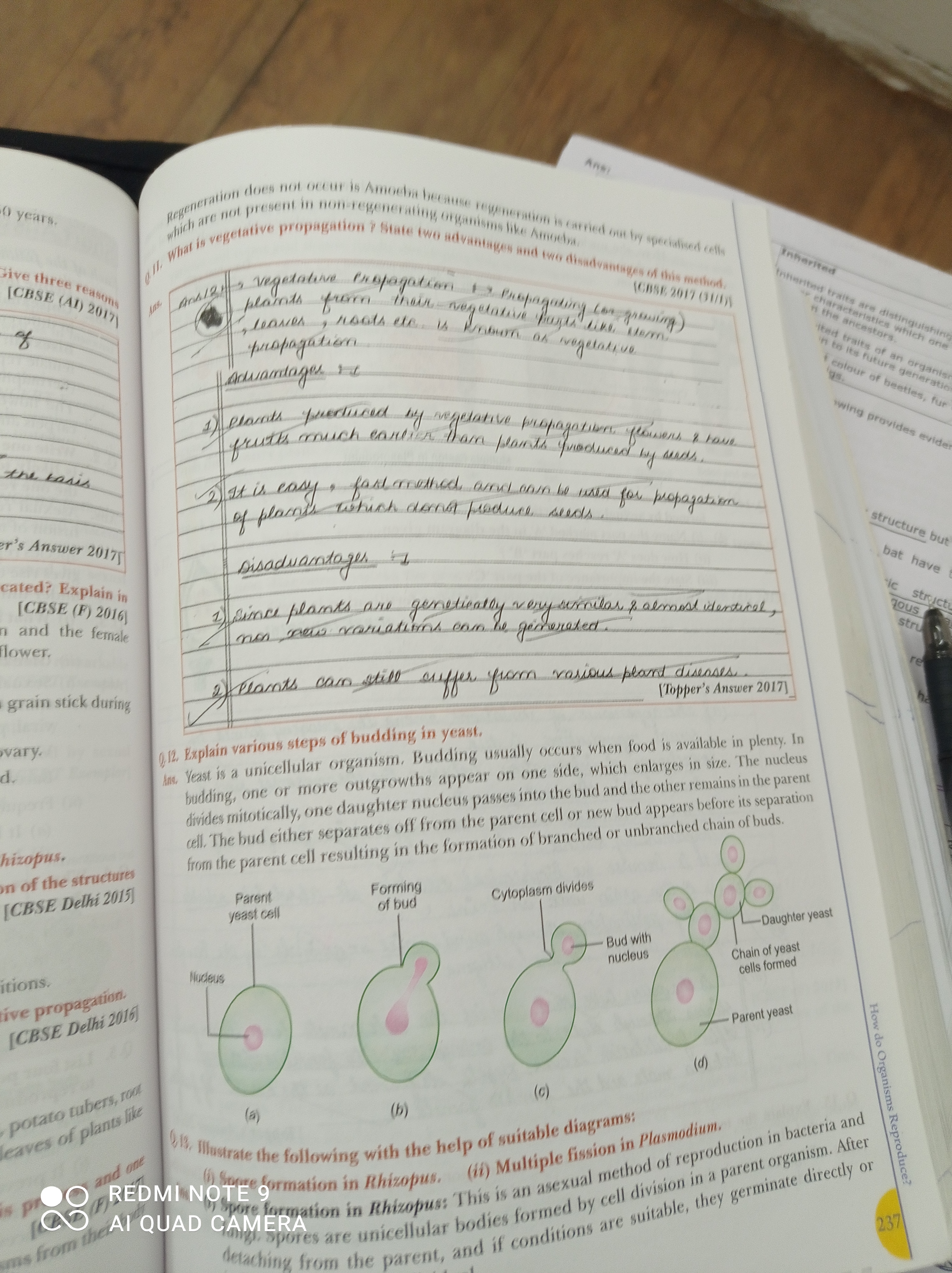What is vegetative propagation? State two advantages and two disadvantages of this method.

Understand the Problem
The question is asking for an explanation of vegetative propagation in plants, specifically defining it and stating two advantages and disadvantages of this method.
Answer
Asexual reproduction using parent plant parts. Pros: rapid production, genetic uniformity. Cons: disease risk, less diversity.
Vegetative propagation is a method of asexual reproduction using parts of a parent plant. Advantages include rapid production and genetic uniformity. Disadvantages include risk of disease transmission and lack of genetic diversity.
Answer for screen readers
Vegetative propagation is a method of asexual reproduction using parts of a parent plant. Advantages include rapid production and genetic uniformity. Disadvantages include risk of disease transmission and lack of genetic diversity.
More Information
Vegetative propagation allows plants to reproduce quickly without seeds, which is beneficial for maintaining specific plant traits. However, it can lead to plants being more susceptible to diseases since there is no genetic variation.
Tips
Avoid assuming genetic diversity will be present in offspring with vegetative propagation, as it usually results in identical clones.
Sources
AI-generated content may contain errors. Please verify critical information